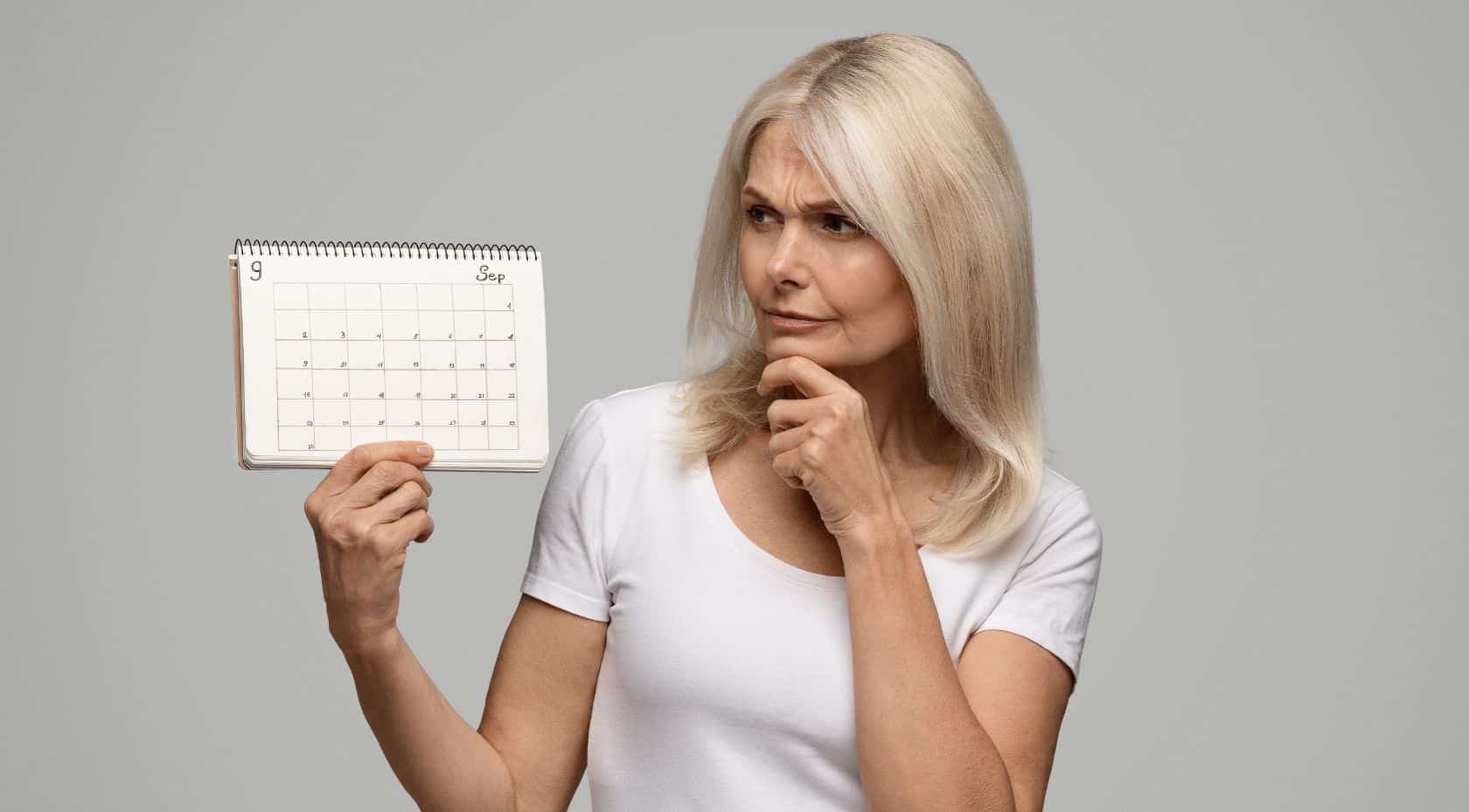When does the menopause happen and why?
The word menopause comes from the Greek words Mens (month or monthly cycle) and pausis (end, stop). Technically, menopause is defined as when you’ve gone a year without a period and the average age for this to happen in the UK is 51. This, of course, varies, but it is normally between the ages of 45 and 55.
It’s impossible to predict exactly when you’ll hit menopause. The age your mother was when she went through it and the date you started your periods are relevant, but there is a cocktail of lifestyle factors that can also influence the timing. These include smoking, alcohol intake, Body Mass Index (BMI), and physical activity levels, and whether you have children or not (more than one pregnancy may delay menopause). Studies show smokers can go through menopause significantly earlier and have a twofold increase of early menopause before the age of 45, compared to women who have never smoked.
Around 1% of women will go through the menopause prematurely before the age of 40 (the youngest woman currently going through menopause in the UK is just 15). Women who have had a hysterectomy (removal of their womb) will go straight into menopause. Another cause of menopause is chemotherapy for cancer.
“The body is pre-programmed to enter menopause in midlife, just as it is to trigger puberty,” explains Dr Arif. “As a result, levels of the sex hormones oestrogen, progesterone, and testosterone (all produced in the ovaries as part of the reproductive cycle) fluctuate and then decline as eggs are no longer released.”
Because there are oestrogen receptors all over the body, including in muscles and joints, the gut and the brain, the hormone fluctuations and declining levels start to cause symptoms.
